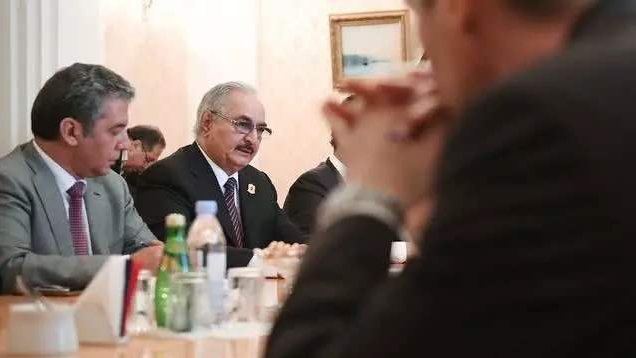
By Prof. Wang Baofu
Under the mediation of Russia and Turkey, leaders of the conflicting parties in Libya held an hours-long indirect negotiation in Moscow on January 13, but only Fayez el-Sarraj, Prime Minister of the Libyan Accord Government, signed the ceasefire agreement while Khalifa Beiqasim Haftar, Commander of the Libyan National Army (LNA), hasn’t made a decision yet.
Why did the conflicting parties fail to reach a settlement?
The situation in Libya is in some way more complicated than that of Syria.
Both the Libyan Accord Government and LNA are backed by different external forces. While Russia and Turkey are busy mediating between the parties, the influence from western countries should not be underestimated, either. After all, tt was NATO that overthrew the Gaddafi regime by force many years ago, after which the Libyan situation has gradually escalated.
Besides, as Libya is an Arabian country, the League of Arab States, including Egypt, Saudi Arabia and UAE, also has a great bearing on its situation now. These league members all play a part behind the scene even though they are not at the negotiating table.
Another important reason for the failed negotiation results from the current military situation in Syria. The Turkish-backed Syrian National Army (SNA) takes the upper hand on the battlefield now, so it won’t easily make a compromise unless it can get what it wants from the negotiation.
What made Russia and Turkey so actively mediate?
From Syria to Libya, Russia, out of geo-strategic considerations, hopes to expand its sphere of influence by resolving these issues in the Middle East, so that its strategic interests and clout in the region will reach a new level.
Turkey wants to deeply engage in the Libyan issue for its own interests as well, as it hopes to increase the national interests and acquire more tangible benefits after the issue is resolved.
Will the Libyan issue be resolved in the short term?
The Libyan issue won’t be really solved anytime soon. A resolution not only depends on the stance of the opposing parties in Libya, but also on whether the external forces can be coordinated to work toward the same goal.
Besides, the external forces are complicated in themselves, comprising the west, the US, European countries, Russia, and Arab states such as Turkey, Egypt and Saudi Arabia. All of them have an impact, direct or indirect, on the Libyan situation. If they don’t reach an agreement and therefore have a political foundation, it will be a long time before the Libyan issue can be resolved.
Now that Haftar failed to sign the ceasefire agreement, it’s possible that the Libyan situation, especially military confrontation, will become more intense in some areas, perhaps with fiercer conflicts and stronger external interference and support.
The right approach to addressing the issue is to get all parties concerned, particularly the opposing parties in Libya, and other stakeholders to sit down at the table and try to find a way out under the UN framework. Otherwise, a successful resolution of the Libyan issue will be unlikely by merely depending on a few countries to push for it.
(The author Wang Baofu is a retired professor from PLA’s National Defense University and military strategist who once served as Chinese deputy military attaché to Syria.)













